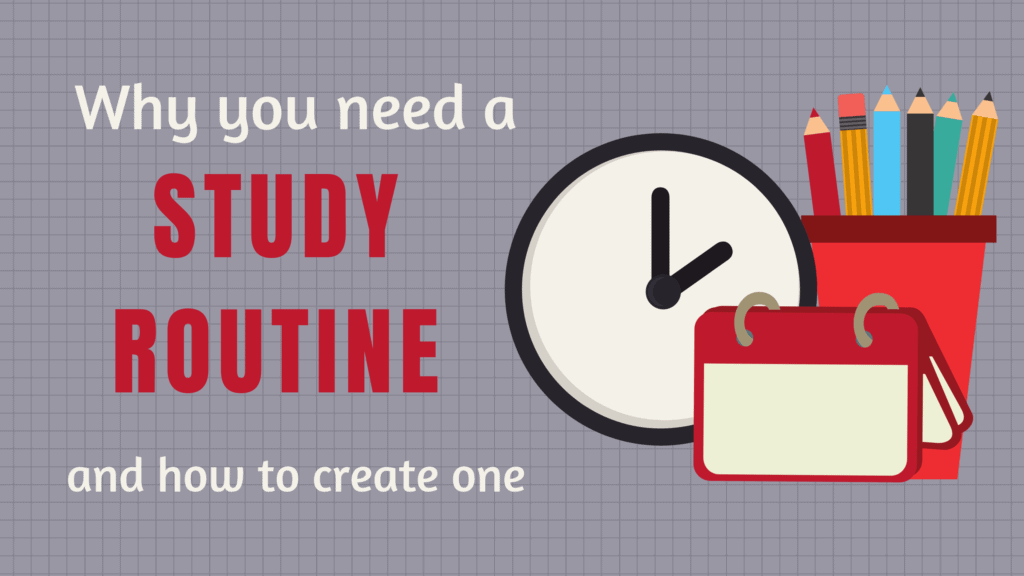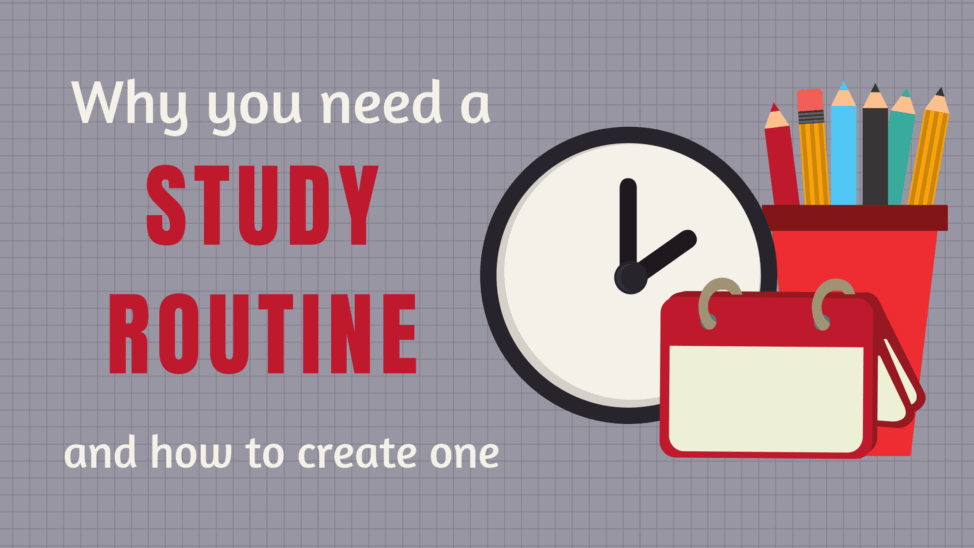
By Katie Azevedo, M.Ed.
Routines are good. Many of us follow routines from the moment we wake up until the moment we go to bed. Think about it: you probably have a routine for brushing your teeth — first, you turn on the water, then you wet your toothbrush, then you squirt toothpaste, and then you brush your teeth…and (hopefully) you follow this routine at least twice a day. (I won’t judge.)
Routines help us make fewer decisions over the course of a day, and this is good because the more decisions we make in a day, the worse those decisions tend to get — thanks to something called decision fatigue. When we establish routines, such as a study routine, our actions become second-nature and we no longer have to think about them.
Pro Tip: Have you heard of a personal operating system for students? It can help you implement everything I’m teaching you about study routines. Find out what a personal operating system for students is, and why you need one.
Getting into a study routine is one of the best school habits we can form. So many of my students — and I have personally tutored thousands of students one-on-one — claim that one of their biggest issues is finding time to get their work done. I get it, really. But establishing a study routine is part of the solution here. Let me explain.
When we do the same thing, at the same time, every day, our brains and our bodies become conditioned. This is good. Think about your bed: don’t you get tired every time you lay on it, no matter what time of day it is, even if you weren’t tired before you laid down? How about the kitchen – don’t you get hungry whenever you smell food cooking or open your refrigerator? We’ve been conditioned.
The same thing can happen with studying. If you sit down to do your homework or study at the same time each day, in the same location with the same materials, you will become conditioned to the experience — and your brain will begin to “expect” thinking and learning. This may sound hokey. But it’s a real thing. Trust me.
Note: If you’re looking for a simple weekend routine that can reduce your school stress, go here.
Why you need a study routine
- Less stress – because you don’t have to worry about when you’ll get your work done
- More productivity – because you planned your time in advance
- Less procrastination – because you’ve made your time non-negotiable
- Fewer interruptions from others – because they know not to bother you during your working time
- Better sleep – because you did your work when you were supposed to
- The list of benefits goes on: here are some more
How to create a study routine:
- Sit down with your calendar.
- Figure out what time of day you can block out for working/studying (this will be different for all of us).
- Aim to pick the same time of day at least on Mondays through Thursdays.
- It’s okay to have a different study routine for the weekend.
- It’s okay to split your study routine into two daily sessions if you need to.
- Block off this time in your calendar as if it’s a doctor’s appointment – make it non-negotiable.
- Decide where your study space will be. I suggest you match it to your learning style. Here are some tips about creating study spaces.
- Stick to your routine. If something “better” comes along, say no to it unless you truly have no homework or studying to do.
How to simplify your study routine
There’s no point in creating a study routine that’s overly complicated; otherwise, you’ll find it hard to stick to. In this post, I teach you 3 ways to simplify your study routine to avoid exam cramming. Read that tutorial when you’re done here.
Other details about creating a study routine
The details of your study routine are going to vary, depending on the following factors:
- your grade level: middle school, high school, college, graduate program
- your activities outside of school: job, sports, family responsibilities, etc.
- your biological clock: what time of day you naturally have more energy
In a perfect world, it’s best to create a study routine around the time of day when we naturally have more energy (our biological clocks), but it’s not realistic to think that we can all do that. So that’s why you do the best you can with the time you have. What’s more important is that you stick with your routine, even when you don’t feel like it. Soon enough, it will become a habit … and that’s when it starts to pay off.

